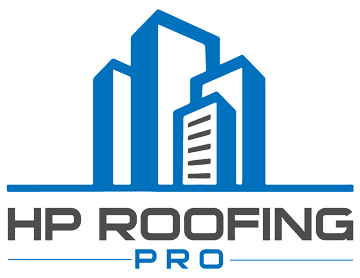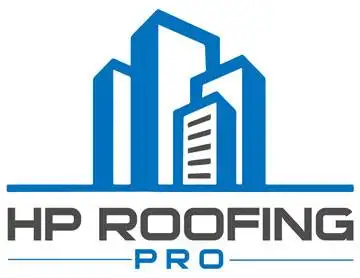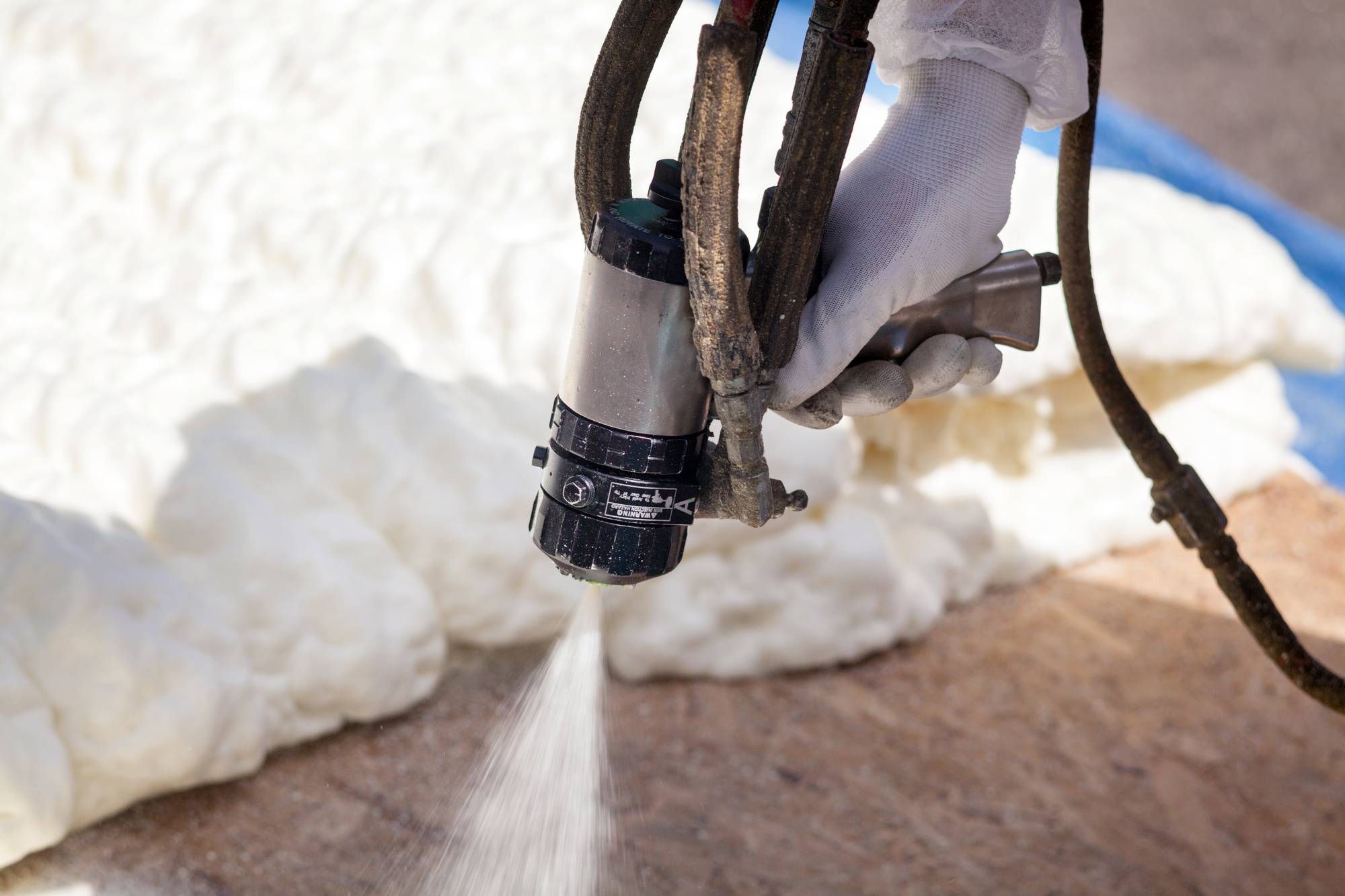Mon - Fri 7:00 am - 4:30 pm
601 South Palm Ave, Alhambra, CA 91803
Posted by thomas ferriere No Comments on SPF: 7 Benefits of Sprayed Polyurethane Foam Roofing
SPF: 7 Benefits of Sprayed Polyurethane Foam
The pitter-patter of rain is a proven relaxing sound until it turns into a nagging dripping in your commercial building. When your commercial roof has a leak, you have one thing on your mind.
How much will this cost me? A quality SPF roof will solve your commercial roofing problems. By the time you finish reading this article, you will understand the major benefits that come with different types of spray foam roofing on your commercial roof.
What is SPF?
Spray polyurethane foam roofing is a commercial roofing solution that creates a waterproof barrier for all kinds of buildings. Buildings used for commercial, agricultural, educational, industrial, and cold storage purposes have used SPF for decades with success. SPF technicians will install the system over either aged or new roofs to add durability, strength, protection, insulation, waterproofing, and slope which will ultimately lengthen the life of the roof.
Benefit 1: A High R-Value
R-value refers to the amount of resistance insulation offers to heat. The higher the R-value, the better the insulation works at keeping heat and cold where you want it.
Among the most common types of roof insulation, sprayed polyurethane foam has the highest value. Here are the average R-values for commonly used roof solutions:
- SPF: 6.6 per inch
- BUR gravel: 0.34 per inch
- XPS insulation: 5.0 per inch
- Metal: 0.00 per inch
- BUR smooth: 0.24 per inch
- XPS insulation: 5.0 per inch
- Polyiso: 5.5 per inch
- EPS insulation: 3.85 per inch
The higher the R-value of an insulating material, the more the material resists heat flow. Thus, you want a material with a high R-value. You will usually see the total savings in your heating and cooling costs in less than ten years when you choose a material, like SPF, that has a high R-value.
Among all of the potential commercial roof repair solutions, SPF offers the highest value for keeping your energy bills low.
Benefit 2: Renewable
SPF roofs have the major benefit of recoating. When they wear out, a technician can spray a new layer of polyurethane foam on the roof.
SPF roofs should last anywhere from ten to twenty years before they need recoating. Once they do, you simply need a technician to spray a new layer of foam on the existing foam. It’s a simple application that requires no downtime for your building.
To determine if a roof needs a new coat of SPF, a technician will measure the thickness of the roof. They will then recoat the roof before the coating becomes too thin to give the building adequate U.V. protection.
The first application of SPF is usually 20 to 30 mils thick. Ten years after the initial coating, the roofing may wear down to a thickness of 7 to 10 mils. Often coating manufacturers provide extended warranties with each re-cat, giving building owners a renewable roof system.
Benefit 3: Quick Installation
Most roof systems require tear-off time and application time. SPF roofing systems require little to no tear-off time. Furthermore, a technician will use a spray machine to apply the material, and thus they can go around penetrations in the roof quite easily.
Furthermore, the spray foam requires less equipment and material than a traditional roofing system. With traditional roofing systems, a truck will arrive with loads of heavy roofing material. SPF application requires far less material.
Because an SPF technician can apply the foam quickly, your business will experience much less interruption. The labor costs stay at a minimum level as well.
Benefit 4: Self-Flashing
Typical roofing requires some kind of adhesive or fasteners to secure it to the deck or insulation beneath it. Self-flashing roofing, such as sprayed polyurethane roofing is self-flashing roofing material.
Installers can spray the foam around curves and crevices, which means it does not require the typical flashing you’d see with other roofing systems. Additionally, conventional roofers need 30 minutes to flash around chimneys and other obstructions. A technician installing spray foam does not require extra time.
Self-flashing means an application expert can apply the foam around the following structures:
- Pipes
- HVAC units
- Parapet walls
- Vents
- Drains
- Skylights
If your commercial roof has any of these units on it, SPF is a great option that will last a long time and require less installation time.
Benefit 5: Seamless Material
Traditional roofing systems are made of seamless material. SPF consists of a solid foam that has no seams. When the technician applies sprayed foam polyurethane, the lines of foam create a seal together to create this watertight, monolithic, seamless layer.
Many commercial roofing systems have rubber roofing. Such roofing has seams that will ultimately separate over time. Water will seep in through the seams.
As temperatures drop, the water will freeze and expand. The rubber roofing will break apart even more as the water continually freezes and thaws.
Wind can also wreak havoc on a roofing system with seams. It can get under a slightly separated seam. The wind will then eventually loosen the seam and allow water to seep into the building.
SPF roofing has no such breaches, and thus it holds tight with water and wind.
Benefit 6: Easy Maintenance
SPF roofing is easy to maintain. Typical traditional commercial roofing requires a trained roofing expert to evaluate and then maintain roofing. SPF requires much less work.
You can even repair small areas of damage on your own. You simply cut out the defective area, give it time to dry out, and apply the caulk. Then smooth out the caulk and wait for the caulk to dry.
Your in-house maintenance staff can maintain and repair small areas of roofing, saving you the time and money of calling in a roofing company.
Benefit 7: Proven Material
Spray polyurethane foam roofs have been around since the 1960s. Building owners have had them installed and recoated multiple times. Many roofing experts will even claim that a foam roof is the last roof you will need to install on your commercial building.
Many roofs with older SPF roofing are on their third recoat. Such a coating takes a day of work and no downtime for the business, making SPF an ideal commercial roofing material.
Spray and Forget About It
SPF roofing is a reliable, proven roofing system. You may pay a little more for this roofing solution initially, but it lasts far longer and saves you more money down the line.
Do you need a new roof? If so, contact us. We repair and replace all kinds of roofing in the greater southern California area.
Recent Posts
Categories
Recent Posts
Do you have any questions?
Contact us at The HP Roofing PRO office or submit a business inquiry online
Contact Us






